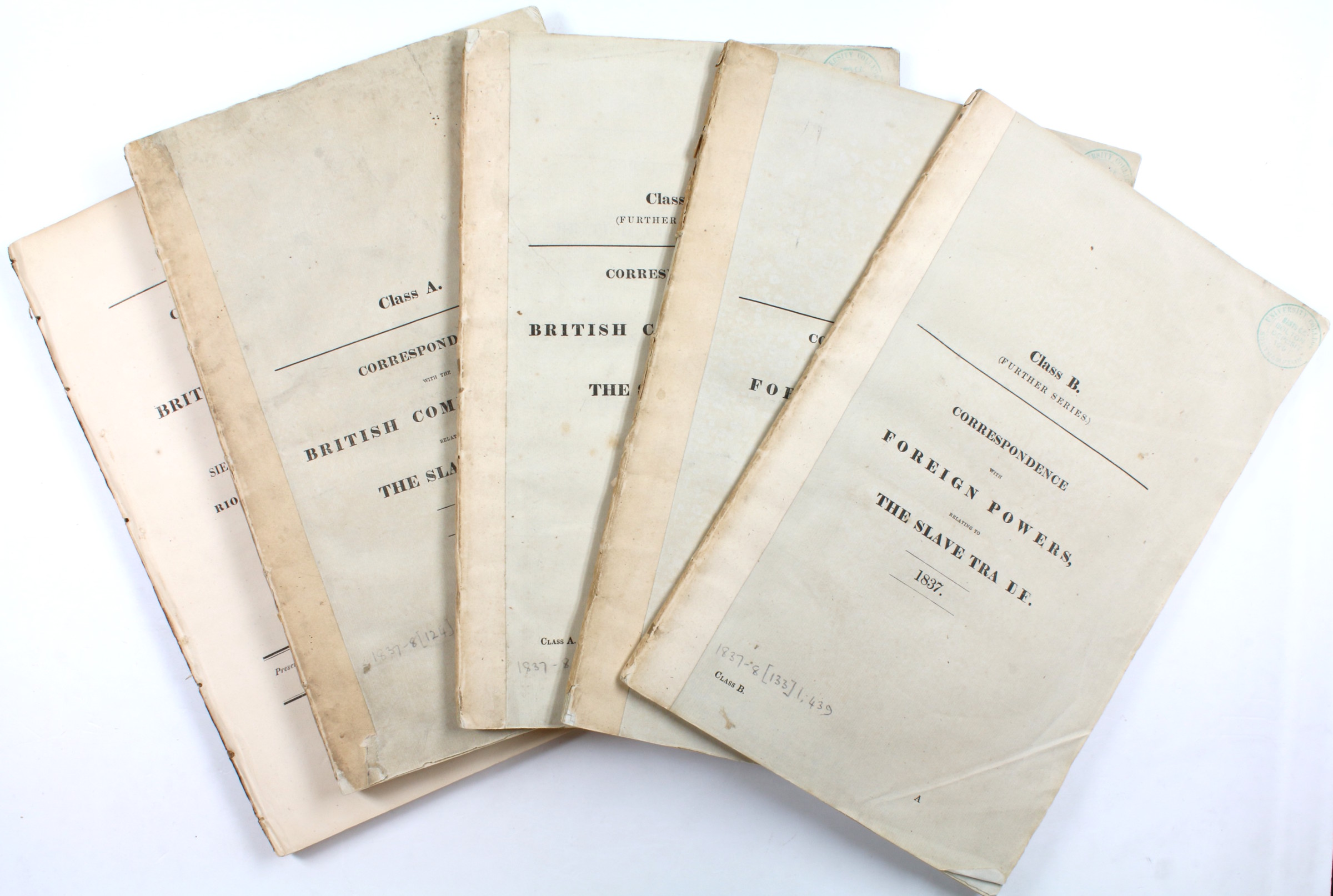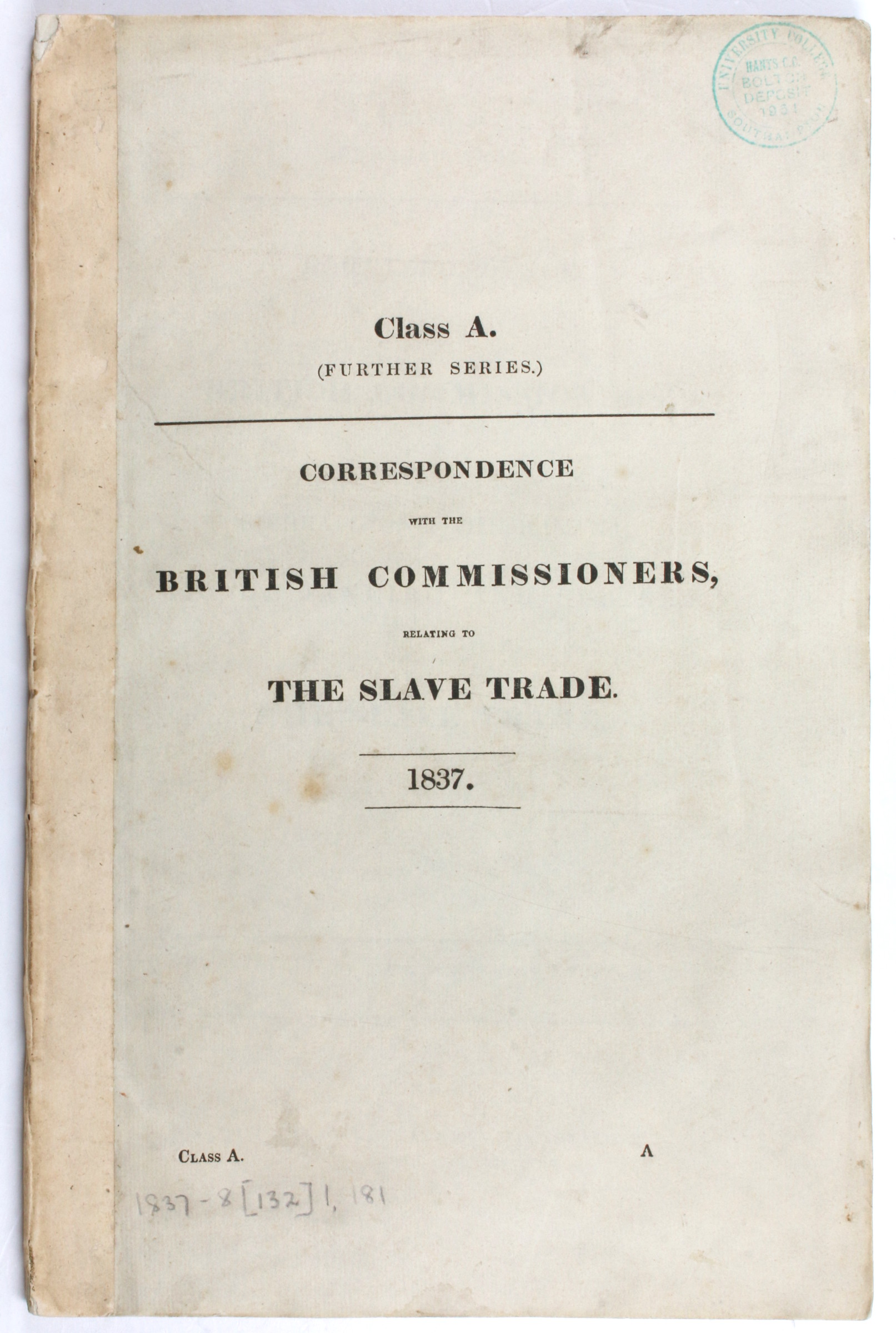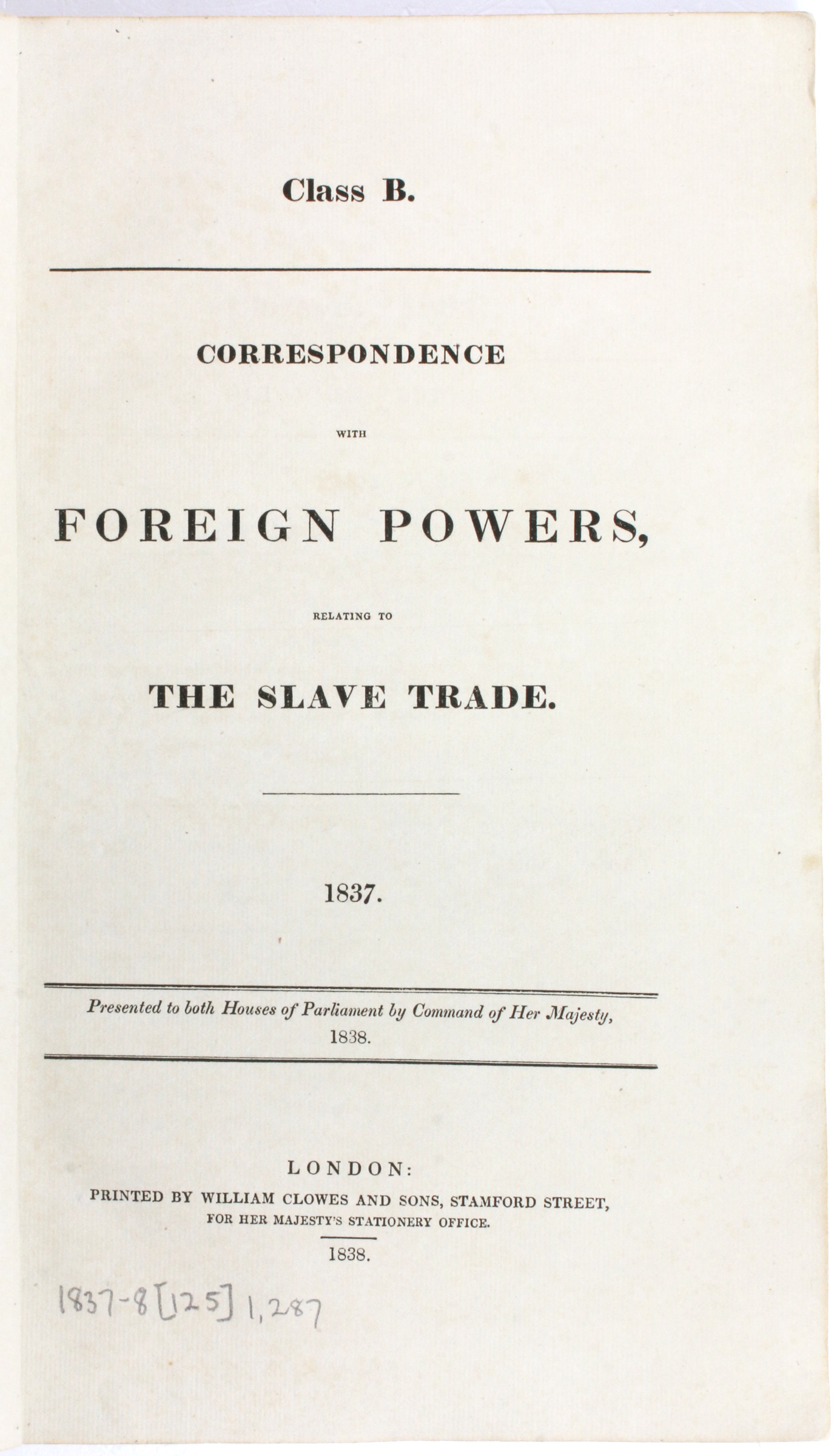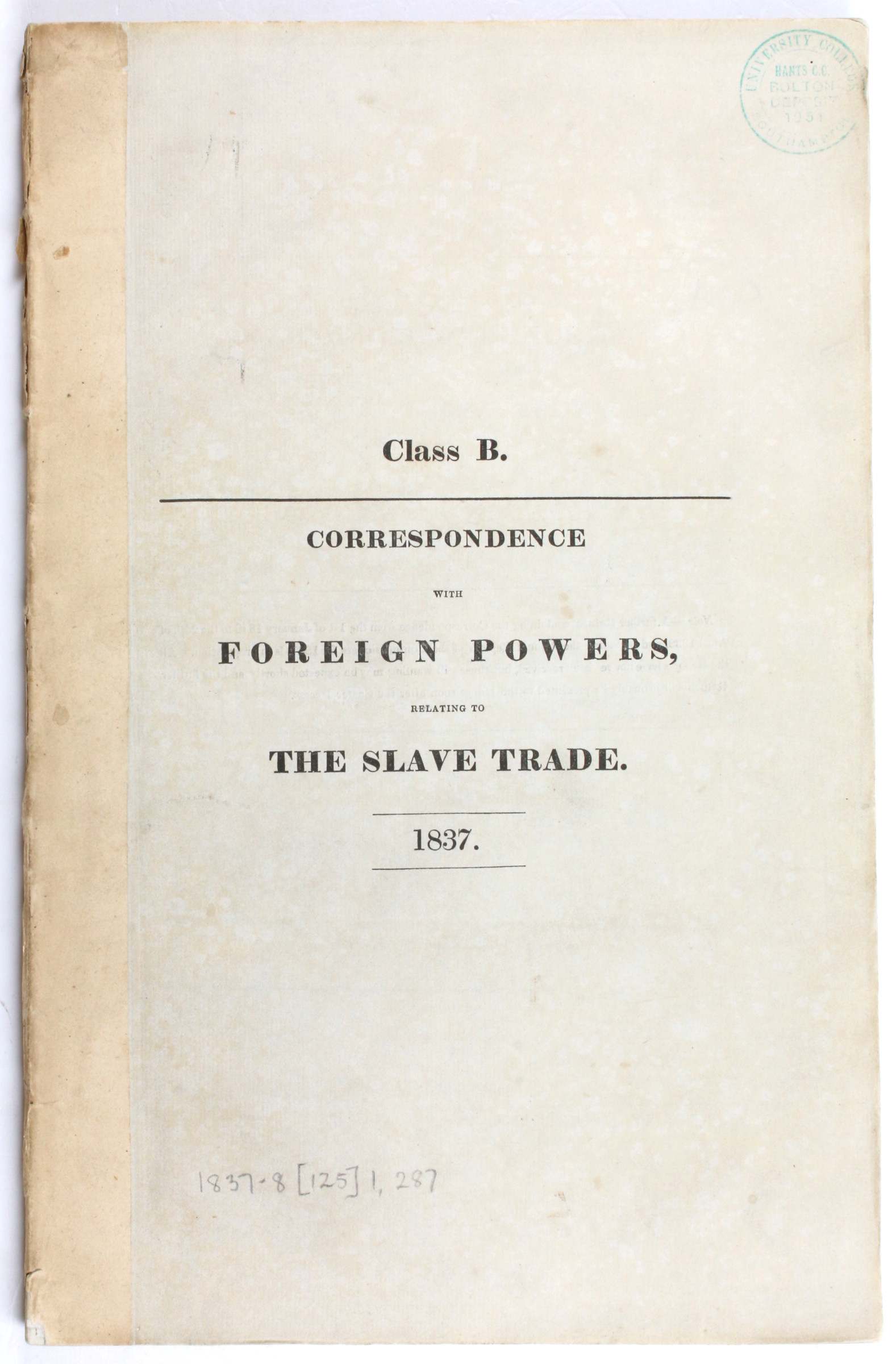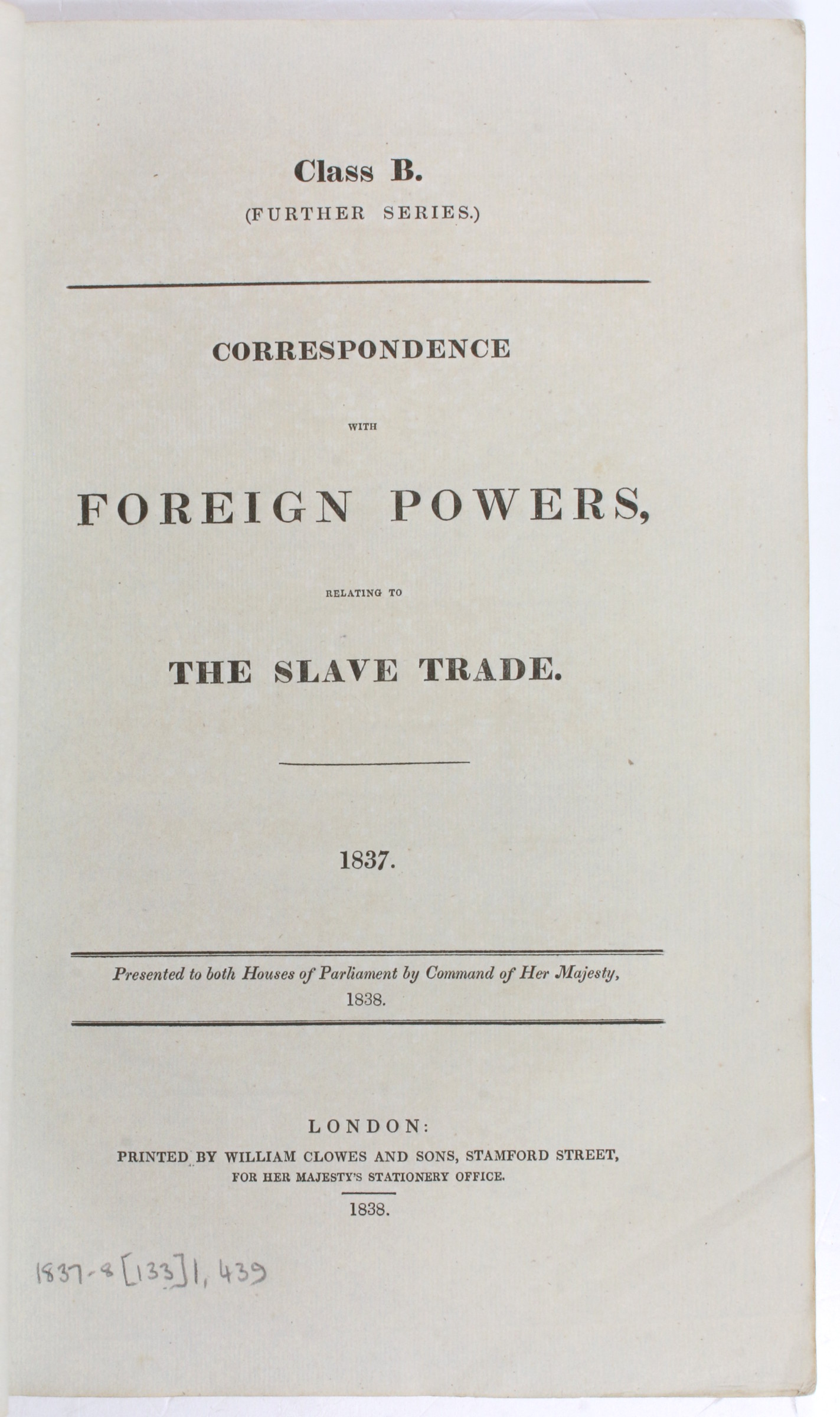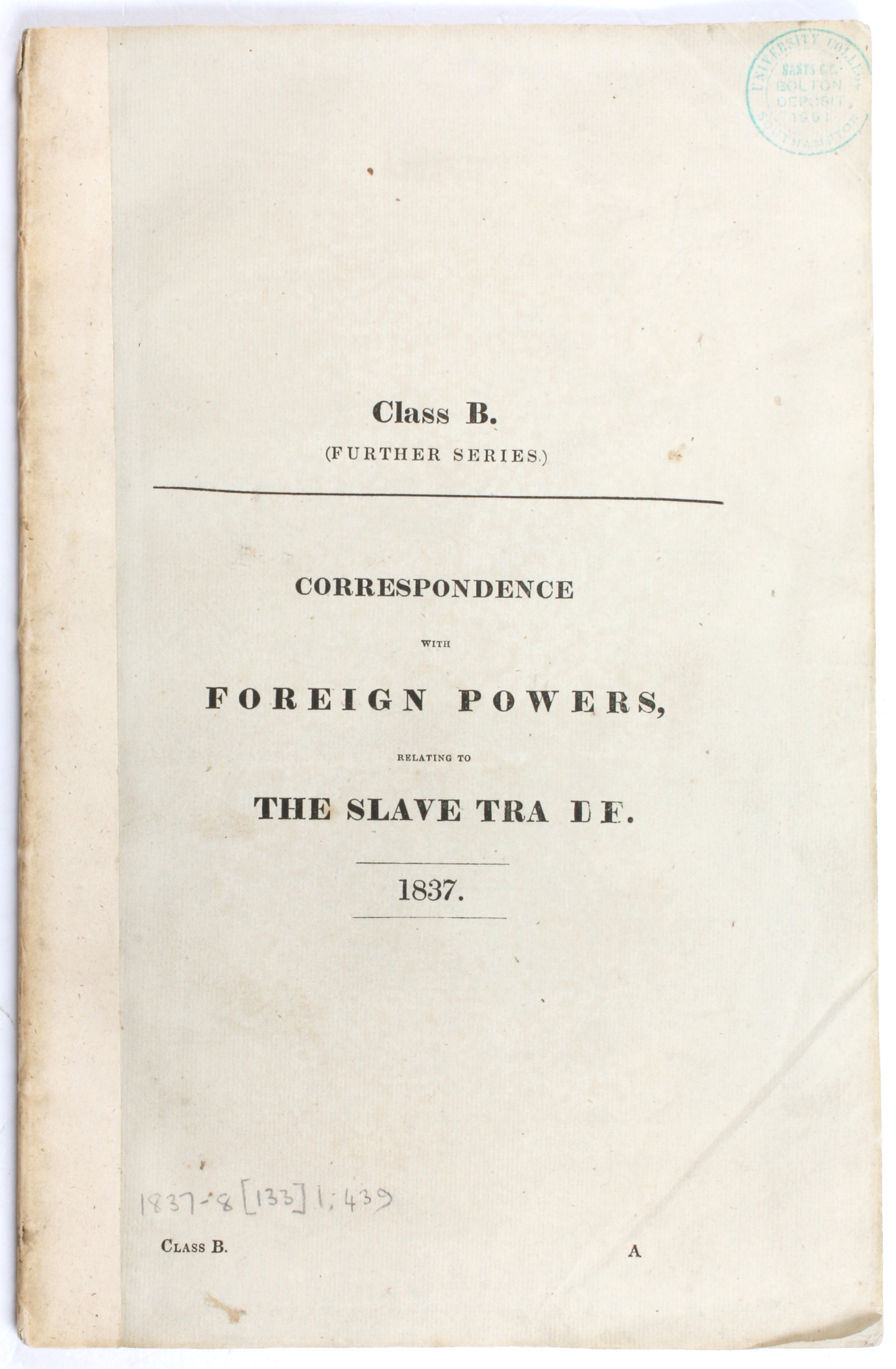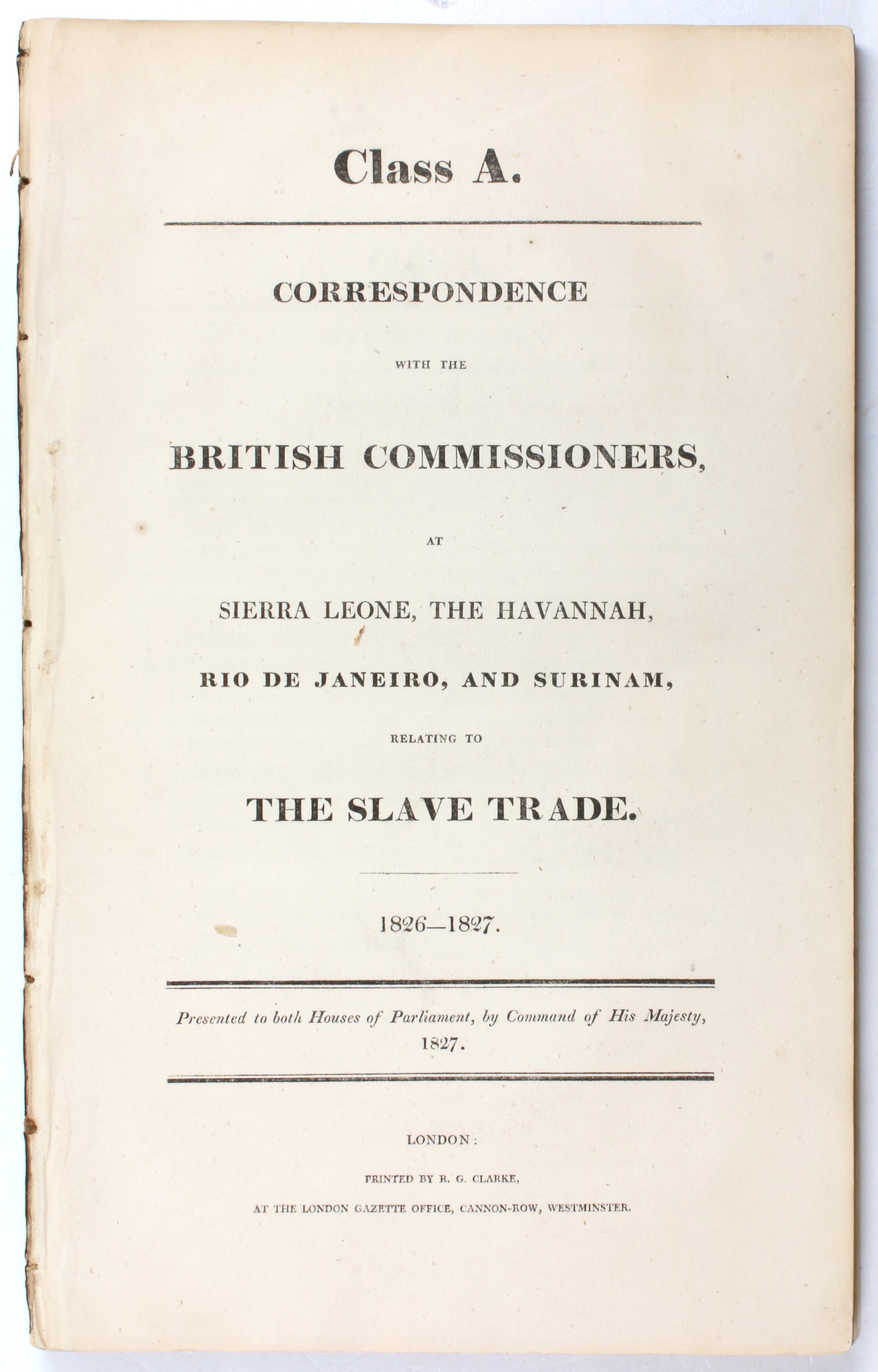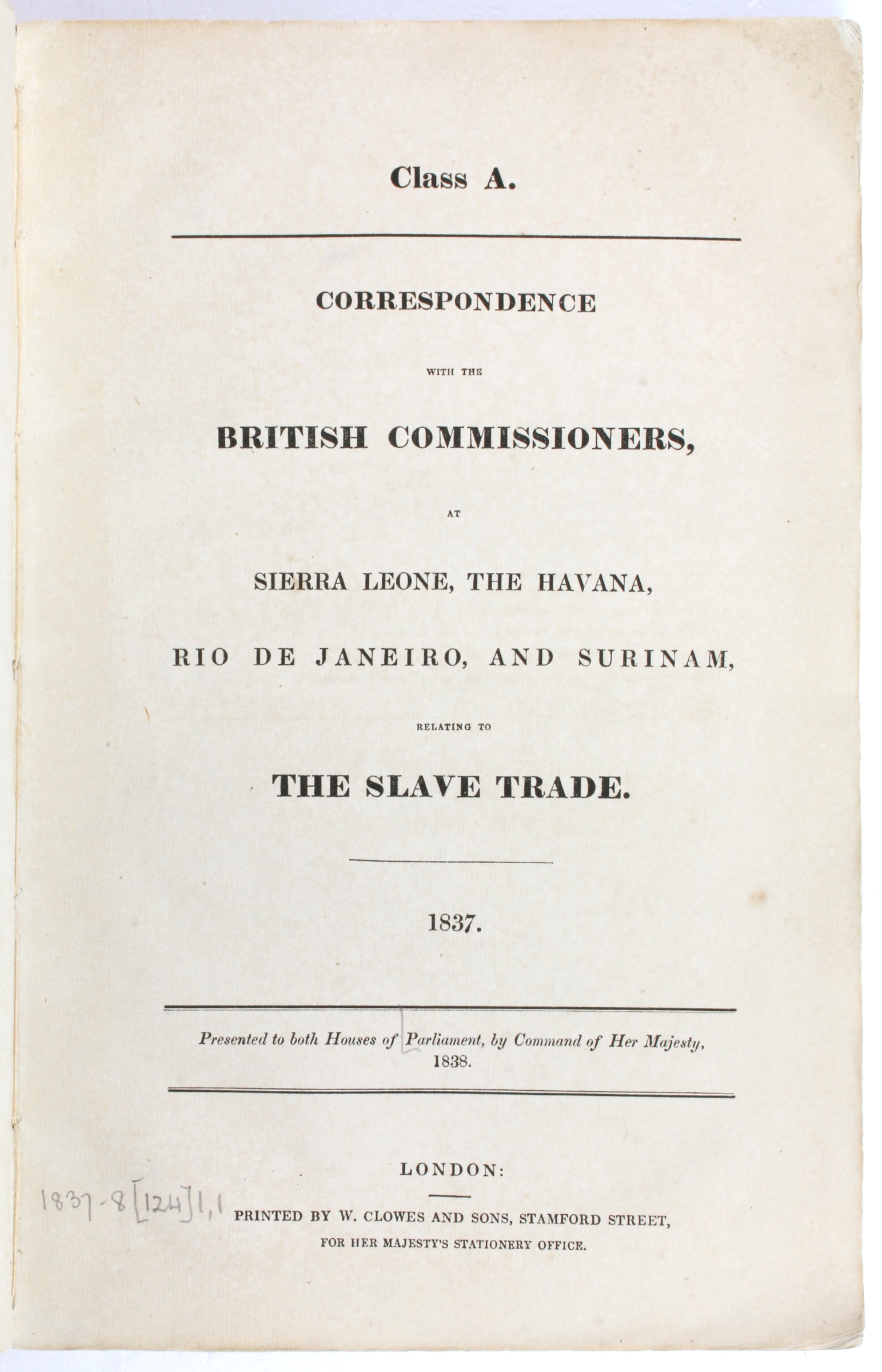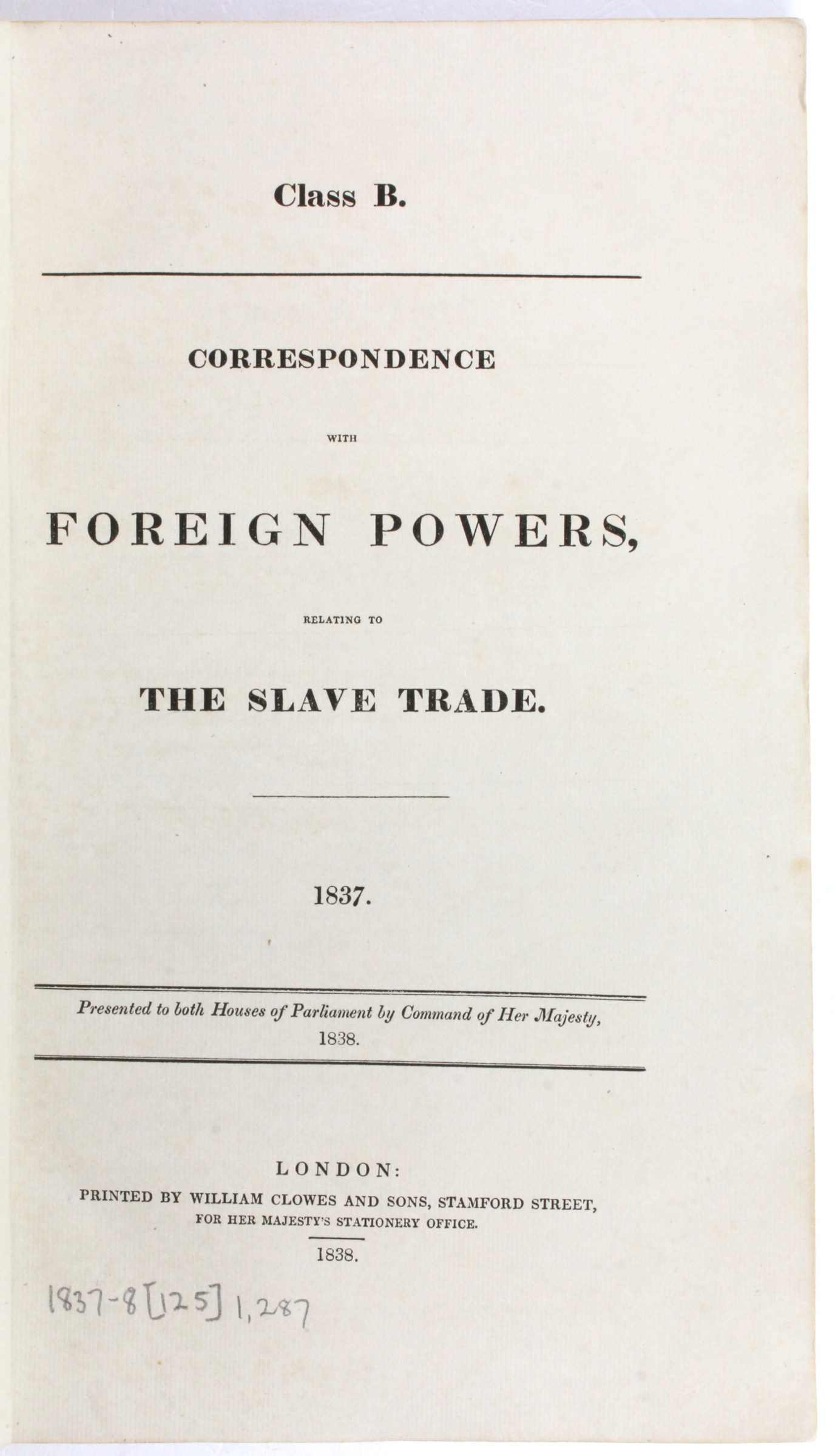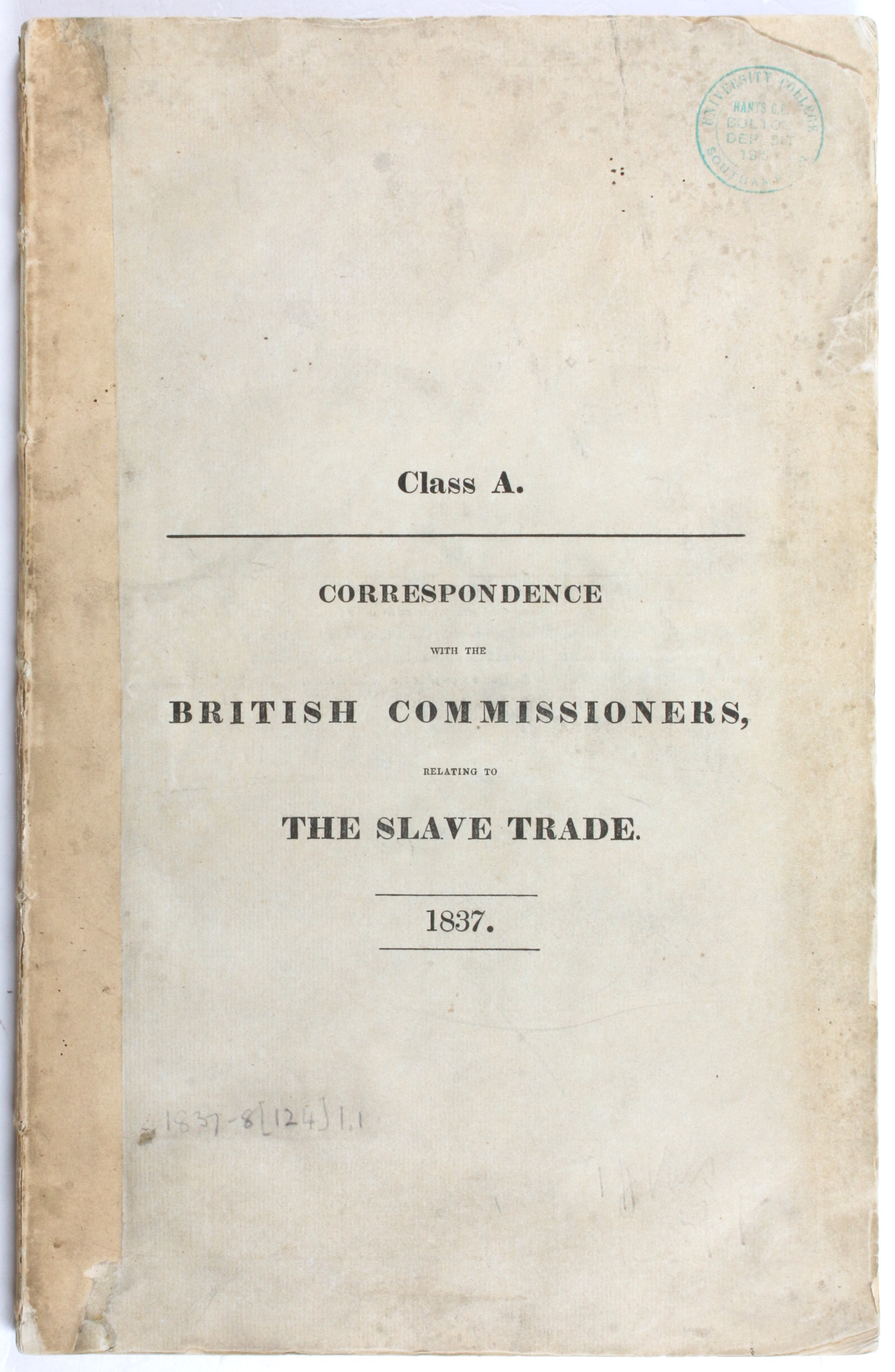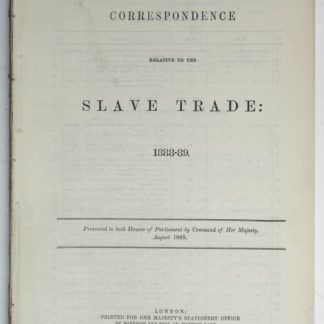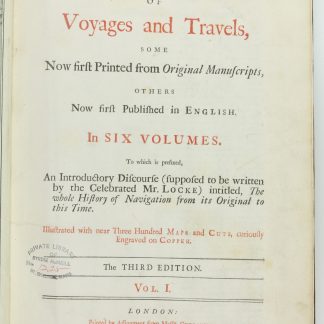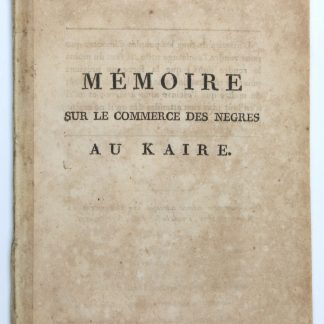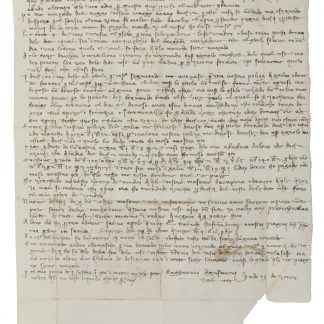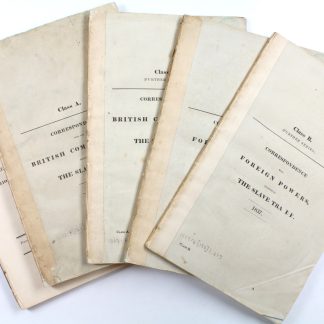From the desk of Lord Palmerston: reports on the slave trade
Correspondence with the British Commissioners, relating to the Slave Trade.
5 vols. VI, 168 pp. (2), 172 pp. VIII, 95 pp. XI, (1), 9-140 pp. VIII, 79 pp. Comprises:
I. Class A. Correspondence with the British Commissioners, at Sierra Leone, the Havannah, Rio de Janeiro, and Suriname. 1826-27. London, R. G. Clarke, 1827.
II. Class A. Correspondence with the British Commissioners, relating to the Slave Trade. 1837. London, Clowes and Sons, 1838.
III. Class A. (Further Series.) Correspondence with the British Commissioners, relating to the Slave Trade. 1837. London, Clowes and Sons, 1838.
IV. Class B. Correspondence with Foreign Powers, relating to the Slave Trade. 1837. London, Clowes and Sons, 1838.
V. Class B. (Further Series.) Correspondence with Foreign Powers, relating to the Slave Trade. 1837. London, Clowes and Sons, 1838. Removed from original binding, papered spines.
€ 6.500,00
Collected correspondence on the slave trade sent between the Foreign Secretary and future British Prime Minister Lord Palmerston and his official informants across the British Empire. Stationed in the major ports of the slave trade, the informants describe the situation in the trade (and legal entanglements on all sides), as well as agreements, treaties, ship seizures, and difficulties. A Lieutenant-Colonel Campbell passes along news from Cairo-based British Consul Dr. John Bowring (elsewhere famous for diplomatic incidents with the Chinese, but apparently in Cairo a trusted source) that the Pasha's troops have been "employed in collecting slaves," and indeed that officers in arrears of pay were receiving enslaved persons in place of that pay. The ruler of Cairo at the time was Muhammad Ali Pasha, who was "very willing to have the whole matter investigated" once the British had found a way to bring up what they considered a delicate topic.
Other reports describe the slave trade between Cuba and Texas, actions taken to consider the slave trade as an act of piracy in Brazil, and the status of previously enslaved people in Cuba.
Altogether, a thorough set of documents relating to the global suppression of the slave trade in the years surrounding the 1834 abolition of slavery in most of the British Empire and colonies. Their main author, Lord Palmerston, was twice the Prime Minister of Britain, and one of the most influential Foreign Secretaries to have shaped the British Empire.
With the ex-libris stamp of the University College of Southampton.
Disbound from larger volume. In good condition, with only light soiling.

